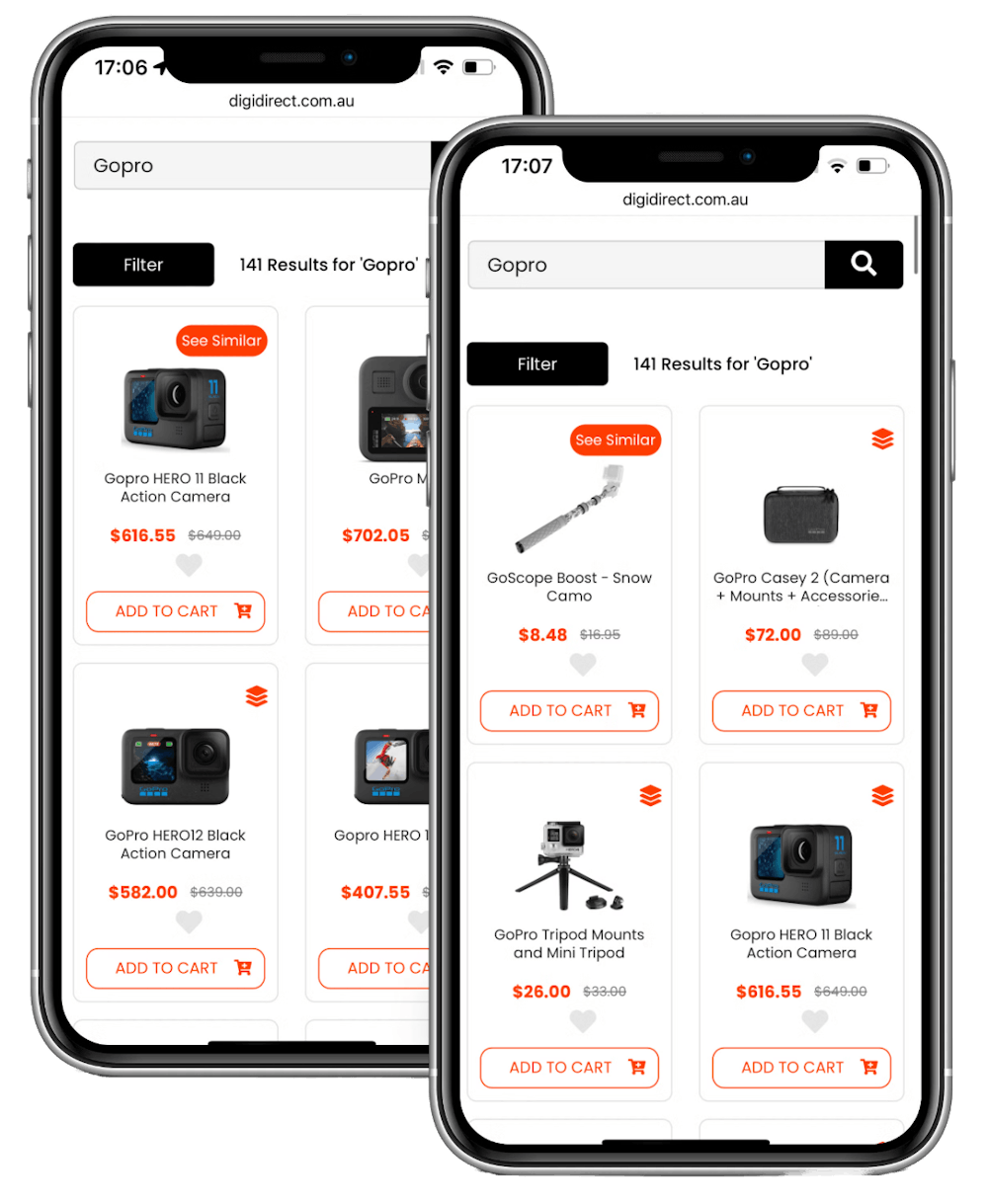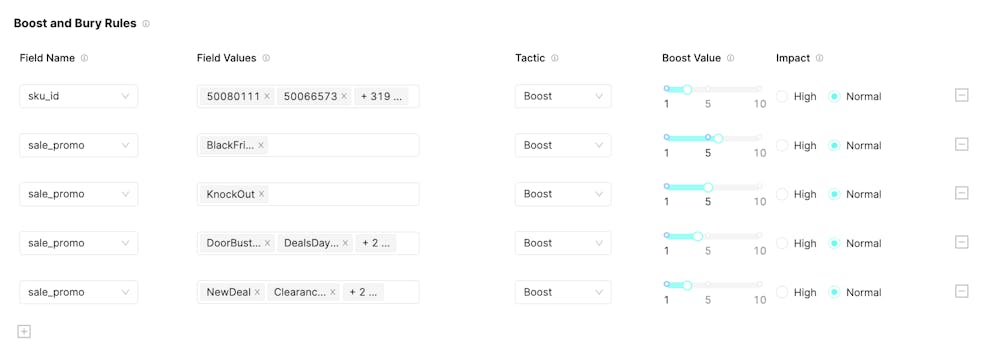AI Powered eCommerce Search
Unleash the power of LLMs for product search on your app or website — with AI that understands the intent and meaning behind customer searches.
Adaptive Transformer Search (ATS) addresses eCommerce search challenges, improving search relevance and eliminating zero search result terms.
Supercharge relevance
Eliminate zero search terms
Automate synonym rules and manual work
Solving the $300 billion search problem
PA’s Adaptive Transformer Search addresses the most challenging problems that exist in eCommerce search, using the same technology behind OpenAI's GPT and Gemini.
RETAIL SPECIFIC TRAINING
Vertical Tuned Models
By fine tuning specific data sets for each retail vertical, we are able to generate the most relevant search results out of the box, even before the model begins to learn and adapt on a retailer’s own dataset.
Solving site search’s biggest pain point: the long, complex and meticulous configuration of a search index. Our VTMs have demonstrated over 37% improvement in relevancy score ranking when compared to open source models pre-trained on over one billion sentence pairs.
This can be clearly measured in Search Click Position analytics in the PA Platform, 'DiscoveryOS'.
CONTINUAL LEARNING
Adaptive Reinforcement Learning
ATS is unique in its ability to continue to learn on a retailer’s website. To ensure the Vertical Tuned Models continue to adjust with changes in user behaviour, preference, website and catalogue data, and language, we’ve built in Adaptive Reinforcement Learning 'ARL' for our models to evolve in tandem, requiring no manual effort by the retailer.

Personalization
Search Personalization
By analysing past interactions and understanding user intent, LLMs can personalize search results based on user behaviour, preferences, and history.

Control
Boost & Bury
Boost items within search results based on any attribute including Brand, SKU, Promotional Tagging.

CASE STUDY
Electronics Retailer Launches ATS
We partnered with a leading consumer electronics retailer to launch Adaptive Transformer Search (ATS) as an improvement to their prior personalized keyword site search.
ATS increased search attribution by +21.7%. We saw overall attribution to PA (including recommendations) increase by +13.3% demonstrating that the increase in search attribution was part of an overall increase in revenue.
In one week we successfully 'rescued' 373 search queries from zero results. Better yet, for these queries, we saw a 98% CTR. No synonym rules nor redirects required.
CASE STUDY

FIX YOUR SEARCH
Exceptional eCommerce Starts Here
Frequently Asked Questions
How is ATS different from traditional keyword search solutions?
Traditional keyword search solutions are all about token matching, and when tokens do not match, manual work is required to overcome that. Website owners will attest to large amounts of time spent reviewing zero search terms, adjusting 'fuzziness' settings to index fields, building synonym rules and/or hardcoding redirects to manually made listing pages.
ATS removes the need for ongoing manual management of search, by using artificial intelligence to understand customer search queries and return relevant results: deep into the long tails of queries and catalogs.
That said, ATS still runs parallel queries to the default vector search model, enabling keyword search functionality for exact match queries such as those for SKUs, GTINs and MPNs.
My existing vendor also has AI / NLP built in, how is this different?
AI, or forms thereof, has long existed in both the query (input) and ranking (output) layers of site search engines. For example NLP based synonym models, personalization based ranking and approaches to link ultimate purchases back to search queries.
It is the middle layer of search, the retrieval system that (more often than not) works in a row-by-row scan for matching tokens based on indexed data.
Around 2016, industry commentators began to tout vector search as the future. Whilst correct, two issues delayed its time to market:
(1) the speed of vector search retrieval, and
(2) the accuracy of vector embeddings (i.e. the relationships between search results and search queries)
The large language revolution enabled a leapfrog moment in vector embedding for natural language queries, with vertical tuned models being critical to success. You cannot simply bolt a search engine on top of ChatGPT. Real-time data from a retailer's website can then act to improve and adapt vector embeddings to trends in customer search intent and a dynamic, always changing product catalog.
ATS enables AI on all 3 parts of the search experience, from query to retrieval to ranking.
MORE FROM PA
ATS Pairs Well With PA's Other Solutions
AI powered contextual commerce
